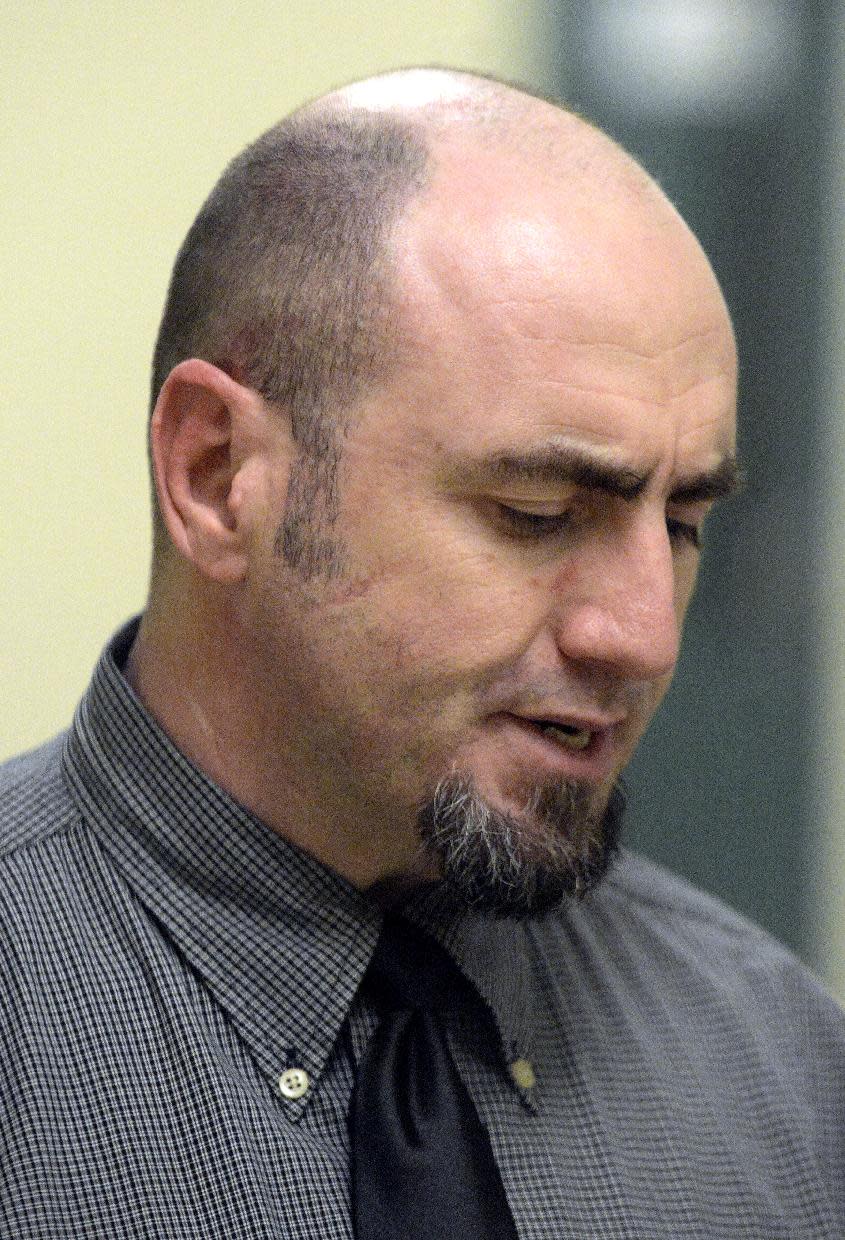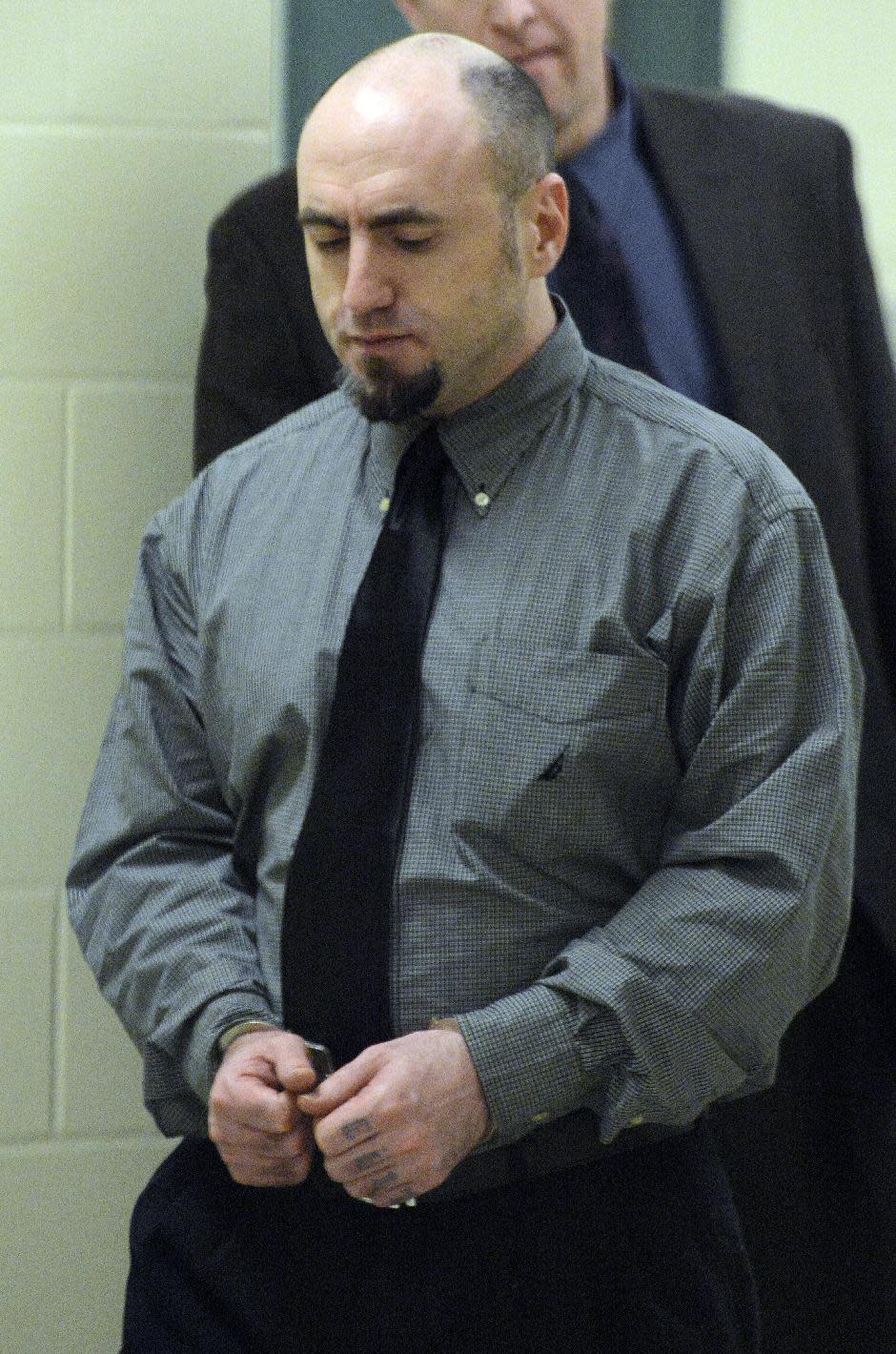Jury to weigh death penalty in carjack killing
SIOUX FALLS, S.D. (AP) — A man who could face the death penalty for killing a South Dakota hospice nurse as part of a plan to assassinate President Barack Obama has a history of mental illness and his life should be spared, his attorney argued Wednesday.
James McVay, 43, pleaded guilty but mentally ill to murder for the 2011 stabbing of 75-year-old Maybelle Schein. McVay said he killed Schein and stole her car as part of his plot to drive to Washington and kill the president.
Jurors are deciding whether McVay should die by lethal injection or face life in prison without parole.
Richard Dieter, executive director of the Death Penalty Information Center, said the death penalty is traditionally reserved for the worst of the worst, and it's rare for a state to seek the punishment of death after finding someone guilty but mentally ill.
"I just don't know of any cases in which you have (such) a verdict, and then the state still seeks the death penalty," he said.
For a jury to consider giving McVay a death sentence, prosecutors must prove one of two aggravating circumstances. One would be that the offense was outrageously or wantonly vile, horrible, or inhuman in that it involved torture, depravity of mind, or an aggravated battery to the victim.
Prosecutor Aaron McGowan said McVay stabbed Schein nine times, with the final blow cutting her vocal cords and carotid artery, causing her to bleed to death within 16 seconds.
"She cried for help, yelled for help," McGowan told jurors.
Amber Eggert, McVay's public defender, said McVay wasn't looking to make Schein suffer.
"It wasn't something he was trying to draw out," Eggert said.
For the other aggravating circumstance, the defendant must have committed the offense for his or her own benefit or the benefit of another, for the purpose of receiving money or any other thing of monetary value. McGowan said McVay killed Schein to steal her car.
"That was why he was in the house in the first place," McGowan said during his opening statement.
Authorities say McVay had just walked away from a minimum-security unit in Sioux Falls on a grand theft sentence and had been mixing cough syrup and alcohol on July 2, 2011, when he climbed under Schein's slightly open garage door, entered her house, killed her and drove off in her car.
Eggert said McVay has suffered from mental illness as well as alcohol and drug issues for much of his life, and the night before the killing he mixed alcohol with a DXM-based cough syrup, which causes hallucinations. He awoke briefly at 3 a.m. to find spiritual entities surrounding him and awoke again hours later to find them still there, telling him to follow through on his plan, she told jurors.
"That was the sign he was going to get the transportation and the final stuff he needed before going to Washington, D.C.," Eggert said.
After Schein's car was reported stolen, police used the tracking service in the vehicle to locate McVay on Interstate 90 near Madison, Wis., later that day and he was arrested after a brief chase.
Madison Police Officer Kipp Hartman had been trying to get the suspect to reveal his name when McVay began saying that he "killed a little old lady" in South Dakota and stole her car to get to Washington, D.C., to kill the president, the officer testified.
Dieter said the guilty but mentally ill verdict gained popularity in a dozen states as part of the public outcry over John Hinkley being found not guilty by reason of insanity in 1982 in the attempted assassination of President Ronald Reagan.
A defendant's mental illness should be a mitigating factor in sentencing, he said, "something that can lessen the degree of culpability."
__
Follow Dirk Lammers on Twitter at http://www.twitter.com/ddlammers


